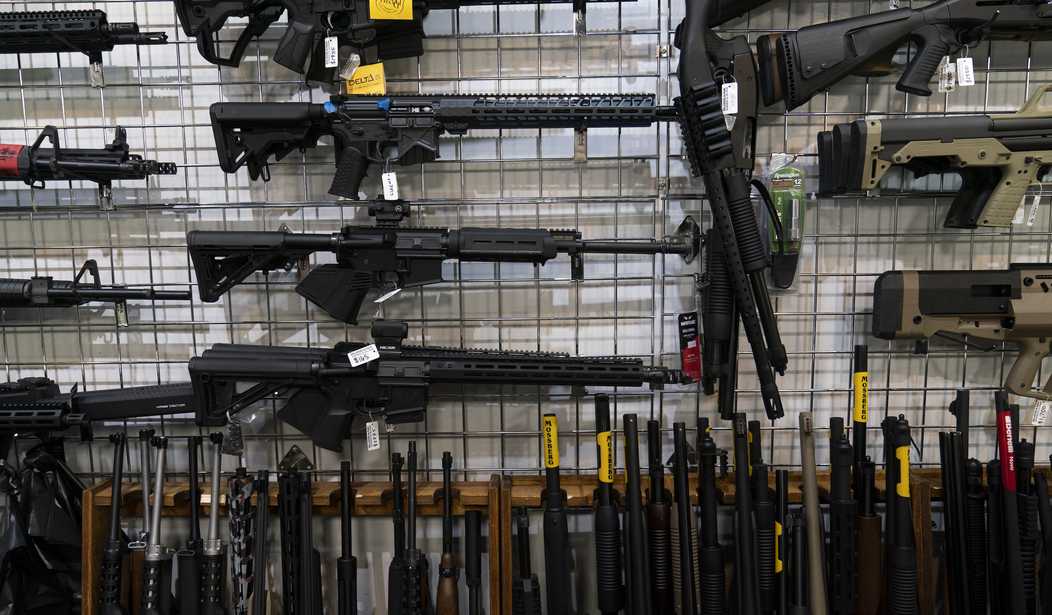The AR-15 is the most popular rifle in America. It’s also the most vilified.
Week after week, month after month, we’re inundated with stories about how the rifle is at once too terrible a weapon–a weapon of war, they say–for Americans to have any need for it while also being too weak and useless to use to fight a tyrannical government. It’s Schrodinger’s Gun.
After deadly mass shootings where the killer used an AR-15 such as Parkland or Sandy Hook, activists and the media fire up the machine even more, cranking out more stories about how awful these guns are.
Despite their best efforts, though, we see sales of these weapons soar.
A lot of people really don’t understand why that’s the case, though. They don’t understand it. They chalk it up to some sick idea that new buyers are impressed with the lethality or somehow inspired by the shooting itself.
Yet a recent report, an excerpt from a book on the AR-15, seeking to talk about the phenomenon a bit used a framing technique where they start with an individual’s story. In that story, though, we can get a glimpse of what’s really happening.
Chris Waltz was appalled. He felt Democrats were using the Sandy Hook tragedy to tell him he wasn’t responsible enough to own an AR-15. He had trained on M16s in the army and carried one into combat in Panama. He had been a firearms instructor and taught his wife and four daughters how to shoot and handle AR-15s safely. He owned AR-15s and loved to shoot them. He followed safety protocols at the rifle range and kept the weapons locked securely in a gun safe at home. He had never committed a crime. What did a lunatic in Connecticut have to do with a law-abiding veteran and family man living in small-town Georgia?
“I didn’t understand how you could blame a whole society for the actions of one madman, and then penalize the whole society for that, when you had people who day in and day out, millions of people, who used it responsibly,” he said.
At the kitchen table, Waltz complained to his wife about the liberal politicians who were trying to pass laws to ban the AR-15 after Sandy Hook. They didn’t even understand how the guns worked. His wife grew so tired of his ranting that on many nights she just left the room and went to bed—even though she agreed with him.
Waltz found himself alone and seething at the kitchen table night after night. Dressed in a T-shirt and pajama bottoms, the muscular forty-nine-year-old with close-cropped hair opened his laptop and logged onto Facebook. On discussion threads on gun-rights pages, he found lots of people agreed with him that Obama’s statement about “meaningful action” on the day of the school massacre was code for wanting to crack down on AR-15 ownership. Feinstein’s quick introduction of a bill to accomplish just that proved politicians were coming for their firearms. They didn’t understand how many AR-15s were owned by people like him.
This, of course, is what happens with gun rights activists.
However, let’s now talk a bit about the people who aren’t really there. You see, a lot of folks think about buying stuff but don’t really. There’s always some other priority and, well, this other thing they want will always be there. When something is always there, it’s easy to procrastinate on getting or doing that thing.
Yet when a mass shooting happens, suddenly that status quo changes.
Politicians start talking about banning guns. People who aren’t gun owners necessarily but recognize that the gun wasn’t responsible start looking and listening. They see officials vowing to pass gun control, to take away their ability to buy an AR-15 in the first place, and they react.
Suddenly, there’s no more status quo. Suddenly they either need to get that AR-15 now or they might not have an opportunity later.
Maybe they figure there will be some kind of grandfather clause. Maybe they figure they can just refuse to give it up. It really depends on the person in question.
Either way, it’s not because of some sick way to identify with the killer, it’s a response to the inevitable gun ban talk we’re going to see.
In other words, the reason the AR-15 is so popular is because politicians don’t want you to have it.
It started with the 1994 Assault Weapon Ban and it fires up again every time someone starts pushing for a new one.
If politicians want to reduce AR-15 purchases, the solution is simple. They need to just shut up about them.








